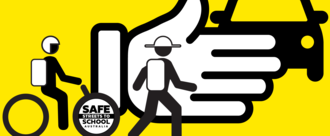-
BANYULE COUNCIL SOLIDARITY WITH PALESTINEAs at 5th January 2024, at least 30,676 people have been killed and 58,960 wounded in Israeli attacks on Gaza since 7th October 2023 (Euro-Med Human Rights Monitor, 05/01/23). Amnesty International has called the situation in Palestine ‘apartheid’, while organisations such as Human Rights Watch have called it ‘collective punishment’ and an ’open air prison’. Each year approximately 500-700 Palestinian children, some as young as 12 years old, are detained and held without charges, in some cases for years. Save the Children has reported that they are the only children in the world who are systematically prosecuted in military courts and that the treatment they receive is unlike that of Israeli children for similar crimes. With 86 percent of children beaten in Israeli detention, 69 percent are strip-searched and 42 percent are subject to injuries during their arrests. In 2015, Human Rights Watch found that Israeli military courts in the West Bank denied bail to Palestinian children in 72 percent of cases, while civil courts denied bail to Israealis in 17.9 percent of cases. Over the past couple months several local councils have passed motions in support of Palestinians, including: Hume, Merri-bek, Darebin, Yarra, Maribyrnong, Wyndham and Dandenong. While this may be happening thousands of miles away, many local Banyule community members are deeply affected by this conflict, particularly those who share religious, cultural, and familial ties to those in Palestine. With around 2.4 % of the Banyule constituency identifying as Muslim with 7% in Heidelberg Heights and 14.4% in Heidelberg West and Bellfield (ABS, Census of population and housing, 2016 and 2021) and a key priority of the council being ‘health and wellbeing’, we believe it is critical the council respond to the concerns of the community by showing solidarity with Palestine. Any motion passed by Banyule City Council must contain these essential elements: * A call for an immediate, unconditional and permanent ceasefire; * A call for withdrawal of Israel from occupied Palestinian lands; * An acknowledgement and mourning of the horrific loss of Palestinian and Israeli lives, and a condemnation of all attacks targeting civilians, particularly in hospitals, schools and places of worship, safe spaces that are protected under the International humanitarian law (IHL); * An acknowledgement that the conflict did not begin on October 7th, but with the Israeli occupation of Palestine; * A call to the immediate release of all Palestinian children from Israeli prisons. * An acknowledgement that many global organisations and institutions have documented evidence of war crimes committed by Israel against Palestinians; * Call upon the Australian Government to prosecute Australians fighting with the IDF in Gaza and the West Bank. * A commitment to cancelling contracts with companies that support Israel’s illegal occupation of Palestine or profit from it (especially companies supplying equipment to the Israeli defence forces). * Call upon the Australian Government to condemn Israeli war crimes, call for an immediate, unconditional and permanent ceasefire, and end all military, economic, political and diplomatic ties to Israel until it complies with its obligations under international law. This includes dismantling the institutionalised system of Apartheid as described by UN agencies, Human Rights Watch, B’Tselem and Amnesty International. * An expression of solidarity with Banyule residents with family and friends in this region; * A commitment to fly the Palestinian flag at Heidelberg Town Hall and the Greensborough offices; * Deplore and actively stand against all forms of racism, including Islamophobia, anti-Palestinian racism and antisemitism within our local multicultural and multi-faith community.596 of 600 SignaturesCreated by Banyule Palestine Action Group
-
Championing positive change or business as usual?On October 26th 2023, we the First Nations Advisory Group to the Queensland Police Service (QPS) and a collective of supporters and allies, took a united stand in our dismissal of the outwardly racist ideology expressed by Queensland Police Union (QPU) President, in the Courier Mail on Wednesday 25th October 2023. On November 13 2023, we again collectively called on the Minister for Queensland Police and the Commissioner of Police to take action as a demonstration that racist and harmful behaviour would not be accepted as business as usual. Not only have our calls for action been met with silence, just over one month later on the 30th November 2023, the President of the QPU has been announced as a member of the Independent Ministerial Advisory Council (IMAC) to give victims a voice. The comments made by the QPU President remain negligent and outwardly harmful to the wellbeing and interests of our First Nations peoples and communities, including victims. It is beyond belief that the same individual who so recently made overtly racist and fearmongering public commentary about Aboriginal and Torres Strait Islander Peoples could be identified as an appropriate member of this Council. The President of the QPU has also repeatedly refused to acknowledge widespread problems in police responses to domestic and family violence in Queensland. This is despite numerous studies and reports to the contrary, including the 2022 “Call for Change” report from the Commission of Inquiry into Queensland Police Reponses to domestic and family violence that found “ample evidence that there are cultural issues within the Queensland Police Service which inhibit the policing of domestic and family violence.” The appointment of QPU President to the Victims Advisory Council represents a gross disservice to the “voice” of victims, and to the countless people and organisations working to change this in Queensland. The people most likely to be victims in Queensland are women, children and young people, too often Aboriginal and Torres Strait Islander women, children and young people. These people have been let down by this decision. Queensland has been let down by this decision. We wish to express our deep disappointment at the Queensland Government’s implicit endorsement of the President of the QPU by giving him a position of influence over the very important and critical work of the council in its consideration of the needs of victims and vulnerable people, such as children, young people, women and First Nations peoples. We invite the Premier and Attorney General to meet with a representative body of this group to further discuss our concerns and to seek a positive resolution to the ongoing harm that is being felt. In good faith we await your response.287 of 300 SignaturesCreated by First Nations Advisory Group, Supporters and Allies

-
Overhaul CentrelinkEveryone needs to support this petition for a more humane welfare system because anyone can lose their current financial status, need support due to illness or accident and everyone hopefully reaches retirement and through unforeseen circumstances requires a government funded pension. How we treat the less fortunate and diadvantage shows the character of our civilisation and should be a national trait Australia is proud to demonstrate. The slogan "a fair go for all" once characterised Aussies' beliefs, this is not he case anymore. Anyone who visits the website ' The Centrelink is broken' will see many examples of harrowing stories of people engaged with a not only uncaring response but abusive and threatening manner of communication. People are unable to contact Centrelink on the telephone when they cannot deal with the issue online through mygov or the Centrelink app. They either wait hours on the telephone or are cut off continuously before being answered and have to go through a process of demeaning verification of identity. For anyone with a disability,aged, English as a second language, regional and remote background or first nations people, or people unaware of their rights, dealing with Centrelink is traumatic. As welfare recipients, who through no fault of their own ( often working hard all their lives or being stripped of earning a decent income) find themselves dependent on benefits that don't cover basic cost of living are simply asking for respect and professional support in an uncondescending manner. I have found the staff at my local Centrelink office very helpful however to cancel an appointment made in case I was unable to use technology on line I had to revisit the centre to do this because I could not contact Centrelink. I was also threatened with having my and my partner's pension suspended if I didn't attend this meeting. For someone out of town or without transport this simple process becomes a nightmare. I cannot call my local Centrelink office to cancel or reschedule an appointment. Welfare recipients are a minority so there are no political point scoring for an overhaul of Centrelink. I need the people to come together and support this proposition because you don't know if this experience could be one you will encounter in the future. For those looking towards retirement on a government supported benefit you will be treated as an undeserving burden on the rest of society who should give up their rights and any savings or property ownership to receive welfare benefit no longer considered or called aged pension.42 of 100 SignaturesCreated by Isobel BARKER
-
THRIVE ON THE FLOOD PLAIN - SAVE OUR HOMESElderly, single parents families, people living with disabilities or chronic illness are sleeping cold in tents and caravans or in temporary accommodation. Help us help them.263 of 300 SignaturesCreated by Lyndall Murray
-
SAVE BUNGAWALBYN FROM FUTURE FLOODS - NORTHERN RIVERSWe've been living on the flood plain for generations, almost 200 years... we are the tea tree capital, the food bowl and the red cedar wood suppliers from the 1800s. Our wood built your homes and buildings it floated down the Richmond River. Now we need your help to survive living on the flood plain.102 of 200 SignaturesCreated by Lyndall Murray
-
Urgent: Reopen unused government owned buildings as crisis housingAt present, Australia is experiencing a rapidly increasing level of homelessness, which has resulted from a combination of inflation/rising living costs and an extreme shortage of housing (in both the rental and home buyers markets) with some states experiencing a housing availability of only 1%. This phenomenon has created sudden and extreme pressure on both the social housing sector (where some areas have a 15+ year waiting list) and homeless organisations, who have been powerless to be able to locate temporary accommodation solutions. The result is visible all over Australia. Most of us have noticed the Campervans, Caravans, 4wd's and Sedans lining our streets and parks, which have been hastily converted, often to house entire families. Many of us have noticed tent cities popping up behind buildings or in carparks, in a desperate attempt for families and individuals to find places to sleep for the night. At the same time, numerous public facilities lay abandoned and empty. Across the last several years, many states have seen the closure of a number of government owned buildings (such as hospitals and schools) and these are not being utilised for anything. Often these buildings already have bathrooms and showers and they contain large quantities of rooms, where simple mattresses/inflatable mattresses and bedding could be placed for people to sleep. The reality is that at this point in time, Australia is set to experience at least another several interest rate rises, which will push the cost of living through the roof. The increase in our homeless population will literally be in the millions at that stage. We have a crisis level problem, which requires a crisis level solution. Recently the Government pledged $50 billion to build more community housing. The first part of the problem with this proposal was that it was blocked by the Greens and the second of the issues is that it's simply not a fast enough solution to combat the problem. We need action now and what better way of solving the issue than utilising our available resources?. Unfortunately with the current direction of our economy, the majority of Australians will either be experiencing housing instability in the coming months, or they'll know someone who is. So, please get behind this petition. Sign it, spread it, make it go viral until we have enough signatures that state governments can't turn their backs on it. Thank you.48 of 100 SignaturesCreated by RACHAEL STEWART
-
Royal Commission into treatment of trans and gender-diverse AustraliansAs of 2023, trans and gender-diverse Australians cannot identify on any intake form at any RTO because of the current data set by NCVER / DEWR. The Workplace Gender and Equality ACT excludes the participation of gender-diverse people, It only collects information on cis-gendered men and women. This affects every medium to large business in Australia. Nearly Every data set in Australia excludes gender-diverse people including studies on Alcohol and Drugs, Suicide, and first-year indicators in schools. Orchidectomies are given to cis-gender men in the public health system but denied to trans women who need to get off testosterone blockers and affirming their gender. Mastectomies are given to cis-gendered women in the public health system but denied to trans men who need this so they can stop binding, avoid scoliosis and affirm their gender. Breast Surgery is given in some public hospitals to cis-gendered women after mastectomies because it is important to their mental health, gender and well-being but denied to trans women who also need this for mental health, gender and well-being. To my knowledge, no politician or report has stood up to say we could be doing these gender-affirming surgeries right now. And they could be done right now! If the government provides gender-affirming leave and supports trans and gender-diverse people but then there is no way that they can get medical interventions then they are forced to go overseas and sometimes put their lives at risk for surgeries that are substandard compared to Australia. If they can afford them at all. Medicare has an ongoing review process and according to them, no one has ever put in a submission to ask them to review Medicare based on the needs of trans and gender-diverse people. The Sexual Discrimination ACT was updated in 1984 to say there are legally more than 2 genders and yet the Australian Bureau of Statistics which affects all the other data sets I have mentioned failed for 40 years to update their dataset. Thus forcing every other dataset that relies on it to be discriminatory Still to this day, they will only allow us to identify if their stakeholders ask for it, if an average Australian can fill out the question and if politicians ok it to happen. (How can this be in 2023, surely this is sexual discrimination?) Pathology forms across Australia are still behind in allowing us to identify and there are currently no pathology profiles for trans men and trans women. GP software like Best Practice for doctors cannot pull gender identity onto a pathology form which leads to gender-diverse people being misgendered and at times receiving the wrong reference ranges. The Australian Human Rights Commission has failed to advocate adequately and so there is no one else to hold the Government to account why has this happened? Public Health Systems across Australia still don't have pathways for gender-diverse people and to my knowledge, not one of them provides medical interventions for adults. There is no suitable training for doctors, surgeons medical staff in our training establishments. We suffer many forms of discrimination at Services Australia, Medicare and other departments. Many Public Hospitals systems have only recently started to make attempts at updating their computer systems to include gender and to find ways to reduce misgendering but there is no uniform adherence to the 2020 ABS Dataset for sex and gender. And datasets across the medical sector are not unified. The government's own AIHW website contains no health data on trans and gender-diverse people in Australia because we don't have population data because the ABS has never included us in the census. And finally, the Australian Defence Force has a suicide rate of 8.8% which is twice the national average. They have 85,000 serving members. For that, they get a Royal Commission, and over 50 reports + millions of dollars in funding. Gender-diverse Australians number at least 700,000 (equal in number to Indigenous Australians) with Transgender youth alone having approx a 48% attempted suicide rate and we have never had a royal commission or a federally funded report of any kind that I know of. How is it that the Government can be so apathetic towards a mental health and health crisis for more than 700,000 Australians? It was as recent as 1989 that the last Trans woman was fined for wearing the 'wrong clothing' Before that Trans and gender-diverse people were harassed, locked up, fined and had acts of violence inflicted on them. This has never been apologised for. Psychiatry and Psychology pathologised trans and gender-diverse people for 80 years but then reversed this and there has not been to my knowledge an apology. There is no current federal department for LGBTIQ+ people and no independent organisation to hold media accountable when reporting. We need to stop studying Trans and Gender diverse people and start studying the reasons behind being excluded and ignored and why there is and has been a complete and continuing lack of human rights for this cohort. We must address one of the biggest factors in poor mental health which is a lack of medical intervention and there appears absolutely no initiatives to fix this. That is a complete lack in duty of care. It doesn't take time to make change. It IS time to make change.7 of 100 SignaturesCreated by Cloé Sophia
-
Safe Streets to School: ParramattaChildren deserve to walk or ride to school safely. Walking to school improves kids' fitness and independence. However, they are often driven over short distances to school by parents. Parents perceive that their child's journey to school is unsafe on part of or on their whole journey. As a result, our streets are subject to tens of thousands more car trips every year, making them even less safe and clogging up roads with unnecessary traffic during morning drop off and afternoon pick up. Streets without footpaths and crossings with speed limits higher than 30km/h are not considered safe by Australia's safe system approach. The Case for crossings: Research shows that children cannot judge gaps in traffic consistently when cars go faster than 30km/h to safely cross a street On streets where there are no footpaths and crossings, reducing the car speed to 30km/h would prevent most accidents: the stopping distance for a car traveling 30km/h is 13m. Stopping distance for a car traveling 50km/h is 37m. The risk of death or serious injury if hit at 30km/h is less than 10%; compared to 90% if hit at 50km/h. It is an unreasonable risk to place our children in harms way on their journey to school.2 of 100 SignaturesCreated by Melissa Brooks
-
Support for a full-time doctor at Cessnock Hospital Emergency DepartmentOver the course of the past three decades, the local GP’s in town visited the hospital, now only twelve GPs visit the hospital and the town's population has tripled, and continues to grow without adequate health infrastructure. Cessnock LGA now has a jail that has two thousand inmates who rely on Cessnock Hospital for all their acute medical needs. Prior to the Covid pandemic, Maitland Hospital was supplying two doctors four days a week to cover the Emergency Department but when the pandemic hit those doctors were taken away and have not been replaced. The GPs have tried to fill those gaps but on many days through the week and after 11 pm at night there is, more often than not, no doctor available in the emergency department. The Area Health Service has tried to plug those gaps with a Telehealth service but this system is slow and cumbersome and can never adequately replace a doctor in person. The lack of full-time medical cover is leading to an unprecedented blowout in wait times, and transfers out of Cessnock and is placing patient safety at risk.2,031 of 3,000 SignaturesCreated by Jenna Vaughan
-
Make Centrelink a “trauma informed” service.There is a tendency to use the word victim as though it is a person's choice. People who find themselves on income support are generally in this unwilling position through various circumstances beyond their control, and in the main would rather be independent as opposed to a burden on society. If you ask yourself what story is really behind the person begging for change at your supermarket, what might come to mind? Do you consider Domestic Violence? Mental Health challenges? Childhood sexual assault? Are they a descendant of Australia's stolen generations? Marginalised due to ethnicity? A refugee? With all that we now understand regarding mental health and trauma, it's time to implement it where it can make the greatest impact. As an educated and privileged nation, we need to take responsibility for those most vulnerable and create genuine compassionate revisions to the services that are here to assist. As an example, NSW Health has available information on their website about Trauma Informed services detailing considerations and responsible processes for dealing with clients who have suffered trauma, along with the principles of Mental Health Human Rights. https://www.health.nsw.gov.au/mentalhealth/psychosocial/principles/Pages/trauma-informed.aspx Services Australia and Centrelink need to take a health based approach in their delivery of human services, to honour and properly reflect the Department of Social Services own Access & Equity policy. We need to remind ourselves we do not exist on a level playing field as far as our life experiences. The rhetoric of equal opportunity doesn't apply to those handicapped by misfortune of their circumstances.10 of 100 SignaturesCreated by Renee Falez
-
Residents for Safe Streets to School: Ku-ring-gaiChildren deserve to walk or ride to school safely. Walking to school improves kids' fitness and independence. However, they are often driven over short distances to school by parents. Parents perceive that their child's journey to school is unsafe on part of or on their whole journey. As a result, our streets are subject to tens of thousands more car trips every year, making them even less safe and clogging up roads with unnecessary traffic during morning drop off and afternoon pick up. Streets without footpaths and crossings with speed limits higher than 30km/h are not considered safe by Australia's safe system approach. The Case for crossings: Research shows that children cannot judge gaps in traffic consistently when cars go faster than 30km/h to safely cross a street On streets where there are no footpaths and crossings, reducing the car speed to 30km/h would prevent most accidents: the stopping distance for a car traveling 30km/h is 13m. Stopping distance for a car traveling 50km/h is 37m. The risk of death or serious injury if hit at 30km/h is less than 10%; compared to 90% if hit at 50km/h. It is an unreasonable risk to place our children in harms way on their journey to school.11 of 100 SignaturesCreated by Ela Ostovary
-
Bent and BrokenAll of us have had some experience with someone experiencing chronic illness. Imagine if it were you, and you have faced a life being told, ‘it’s in your head, oh it’s not that bad, I don’t know what’s wrong!’ This is the common experience of people with rare conditions. The social media groups are filled with horror stories of poor treatment, medical gaslighting and a profound level of medical ignorance. It is appalling that here in Australia we do not have adequate trading of Dr’s in these conditions. I think most of us could recall a time when we have had a bad experience with medical treatment, imagine if that one experience was repeated many times over, over many years. At the same time you just continue to get more unwell. This is what it’s like to have a rare genetic condition. I believe that we can demand better from our decision makers. I believe that this is an opportunity for Australia to lead the world in coordinated treatment and research options for those with these conditions.857 of 1,000 SignaturesCreated by Tracy Finnegan

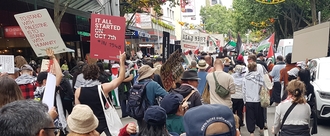
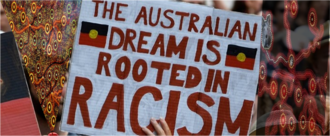
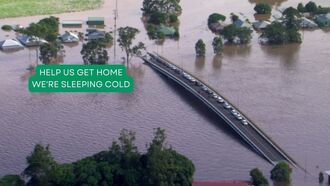
.png)


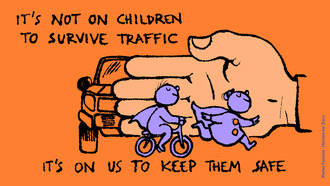

.jpg)
